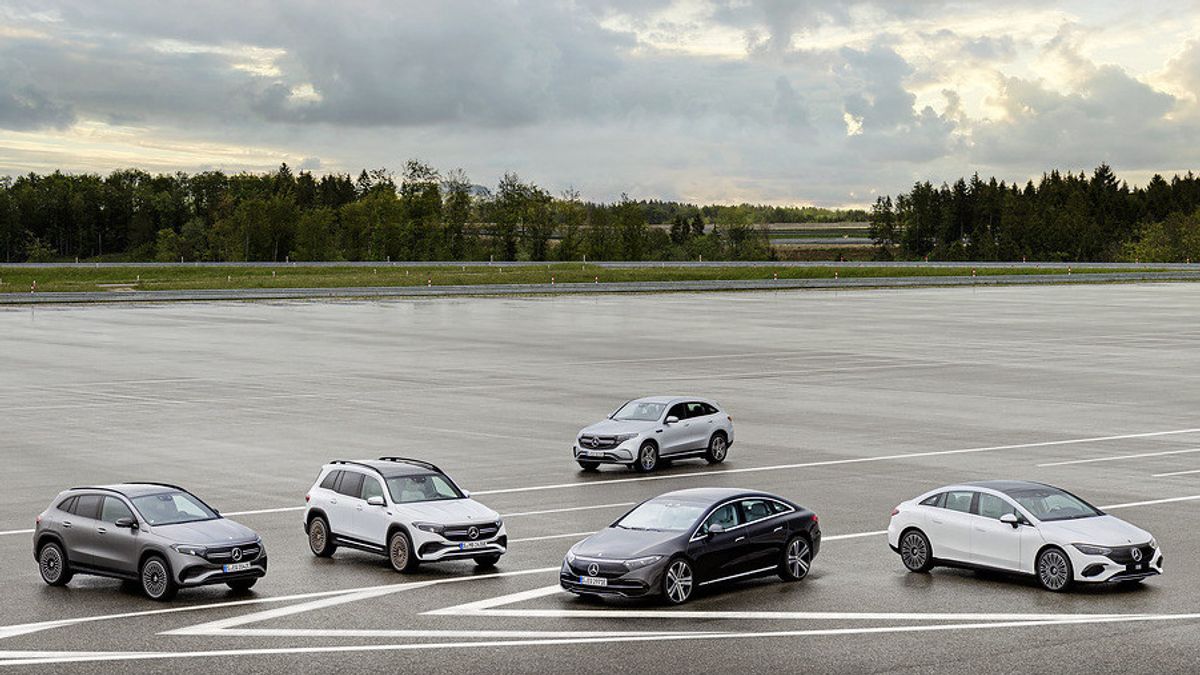JAKARTA - The European automotive industry seems to be relieved by the permit to produce cars with internal combustion engines after 2035, as long as they use synthetic fuels (e-fuels) that have been approved by the European Union. However, not many manufacturers welcomed this. One of them is Mercedes-Benz.
Mercedes-Benz CEO Ola Kallenius believes that electric vehicles are a future for the company. He also said that his party would not change plans to switch to synthetic fuels.
"Mercedes has a strategy that clearly relies on electric driving. We will not change this because of the decision on electronic fuel," said Kllenius, quoted from Carscoops, Tuesday, April 25.
Kallenius also added that Mercedes-Benz will be determined to focus on producing electric vehicles starting in 2025.
"Starting in 2025, we will align all of our new vehicle architectures only for electric driving vehicles," said Kllenius.
Although e-fuels will later be useful for internal combustion engines for existing Mercedes cars, Kallenius does not see the fuel as a long-term plan.
Mercedes-Benz is one of several manufacturers that did not welcome the new approval from the European Union regarding the sale of fuel cars after 2035.
In line with Mercedes, Volkswagen also insists that for those the combustion engine era has ended after 2030 and will focus on electric vehicles.
Different from the brother, Porsche actually welcomes it by supporting combustion engines to be produced in the future.
There is also a parent company from Peugeot and Lancia, Stellantis, who welcomed this positively. In fact, they are testing combustion engines to match the e-fuels. Although, Stellantis is also fully committed to producing electric vehicles by 2030.
The English, Chinese, Japanese, Arabic, and French versions are automatically generated by the AI. So there may still be inaccuracies in translating, please always see Indonesian as our main language. (system supported by DigitalSiber.id)








